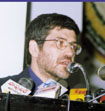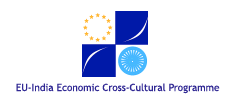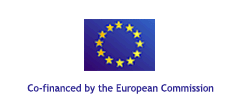
"Europe and India: Past, Present and Future" is a three-year project co-financed by the European Commission within the framework of the "EU-India Economic Cross-Cultural Programme". The project, which is carried out as a collaborative effort involving Italy, Austria and India, aims to extend Indo-European co-operation, at present very active in the field of physics and mathematics, to the applications of mechanical sciences and computer sciences to engineering, industrial management and the environment. The general purpose of the project is to establish a network in order to develop collaborative interaction, research and common activities both in Europe and in India in the areas of mechanical sciences, computer sciences, industrial automation, hydrology and the environment. The project is t a rgeted primarily at research workers in these fields, at experts in water management, water exploration and water protection, at chief executives from public institutions and at engineers working in industry. The specific objectives of the project are: bringing together scientists, research workers and experts in Europe and India; promoting collaboration with experts belonging to institutions not involved in the project; preparing the ground for possible extension of the network.
The "Europe and India: Past, Present and Future" project focuses on courses, multimedia assistance and joint research. In 1999, five courses were organised. Three courses, instituted by the International Centre for Mechanical Sciences, were held here in Hyderabad. The first course, "Advances in Optimal Design of Mechanical Systems", treated problems related to modern design technique with particular applications to the automobile industry. The second course, "Diagnostics of Rotating Machinery", dealt with ways and means to avoid failure particularly in power and petrochemical plants. The third course, "Design of Heuristics for the Solution of Complex Problems in Resource Management", given during this week, has been devoted to the study of the inherent complexity of optimisation problems and to the design of approximation algorithms and heuristics for their efficient solution. The other two courses, instituted by the B.M. Birla Science Centre, were held in Udine. The course "Reliability Engineering and Software" treated important topics for people working in industry, who need to receive up-to-date knowledge and to be made aware of the practical implications of computer-related complexity. The other course, "Computer System Architecture", treated the recent advances in hardware and software with special reference to parallel computing models, distributed computing and performance modelling.
In order to make the information accessible to a wider public, the Società Indologica "Luigi Pio Tessitori" produced a videocassette and a CD-ROM for each course. T he videocassettes summarise in five lectures the general contents of the courses while the CD-ROMs include, in addition to a presentation of the course, diagrams, examples and an updated bibliography.
The joint research on hydrology will focus mainly on the consequences of human activities in highly populated areas and on the quality and quantity of ground water/drinking water. It will develop collaboration activities involving academic personnel and experts to define existing problems and to propose methodologies in solving them within the framework of their different backgrounds. During 1999, meetings were arranged to discuss the local situation and to define actual needs. The project will be carried out in Andhra Pradesh starting from May 2000 by Arsenal, in collaboration with the other partners of the network. At the same time, information will also be collected and discussed in Austria and Italy.

